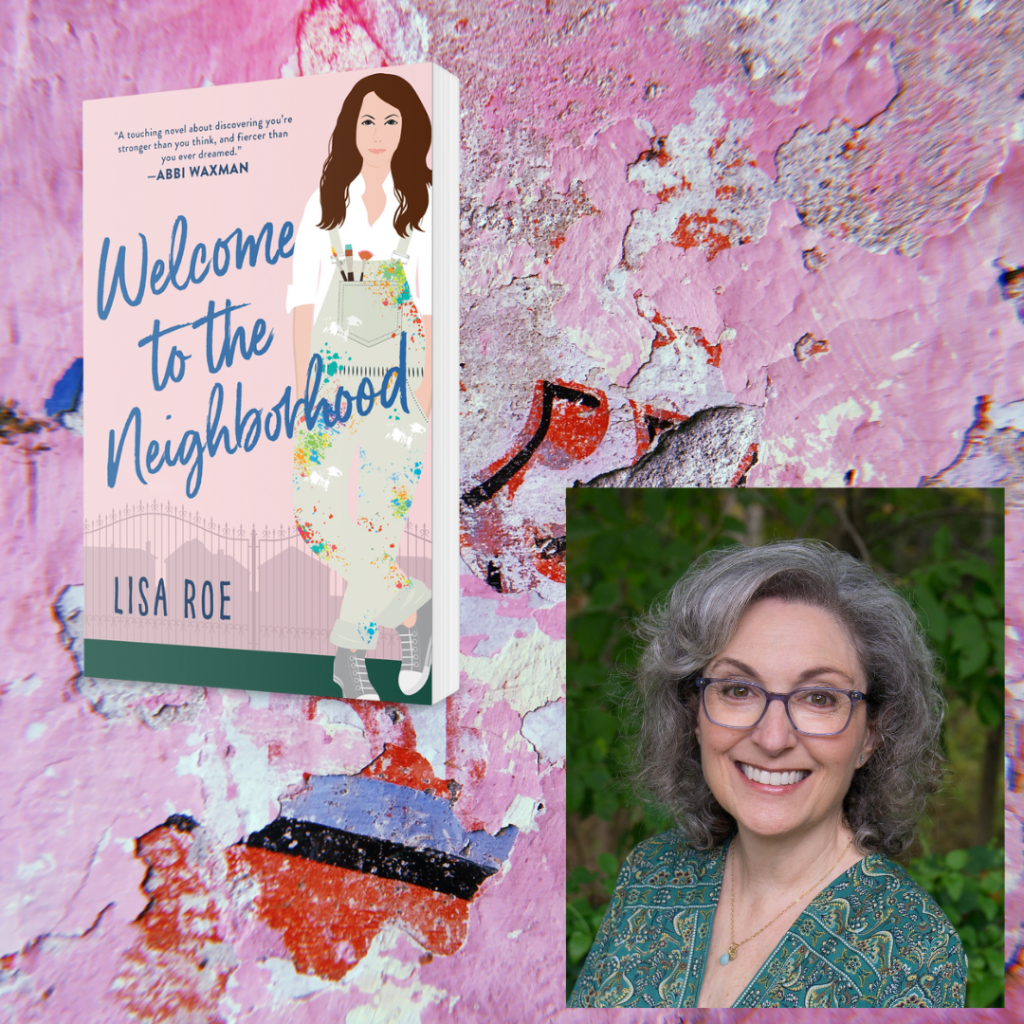
Lisa Roe is a New Jersey-based author and former copywriter. her debut novel, Welcome to the Neighborhood, is a mom-com which USA Today described as “a perfect anthem for moms and daughters everywhere who are figuring out what it means to fit in.”
Lisa’s been writing since she was eight years old, when she penned Foal of the Flames, inspired by a marshmallow she’d been toasting that fell into the campfire and ignited, looking—at least to a horse-crazy girl—like a horse’s tail.
She was kind enough to share her thoughts on mom-coms, how her advertising background has helped her write fiction, and the value of stick-with-it-ness.
What prompted the story, Welcome to the Neighborhood? And, how did you come up with the idea for the school fashion show?
I really wanted to write a mom-child love story, while showing the mother as a flawed human being. As moms, we try so hard and have the best intentions, but we all make mistakes. Ginny, the main character in Welcome to the Neighborhood, made a few mistakes. None were awful, but she still regretted them.
I also wanted to write about the concept of fitting in to new social circumstances. As a both a child and adult, I moved around so often, I always had to slip into whatever social circle was around me; I’m not a big enough personality that I can create my own group. So, the question becomes: do I change myself to be more like these people or are these not my people?
The fashion show came from my experience volunteering with the PTA. I worked on a school fashion show, and various plays; I’m crafty and got involved making different things. It also was a way to bring in the issues around body image and eating disorders. A friend with experience on these subjects helped with my research.
How has your background in advertising helped your fiction writing?
I think my background is a plus. In advertising, you have a limited amount of time, so I learned to get my point across quickly. And by writing for radio, I learned to write dialogue.
I also learned to write cleanly. When I first me with my editor, she said she knew I wrote ad copy because I wrote at a fast pace and turned in clean copy.
Also when you work in advertising, you get your work critiqued every day. You have to develop a thick skin. You need this in writing fiction, as well. You have to be able to take critiques and often rethink how you say something. It all turned out to be helpful.
Do you typically start with character or plot, or some combination?
I usually start with a concept—like, I want to write a story that puts someone in this environment. In my next book, a mom runs up against people who make her uncomfortable and must decide how to deal with it.
When Welcome to the Neighborhood is brought to the screen, do you have any idea who you’d like to play Ginny, Harri, Jeff, and the other main characters.
I do! For Ginny, I’d love Linda Cardinelli. who’s plays Judy Hale in Dead to Me. She’s also been in Bloodline and Mad Men, among other shows, and played Velma Dinkley in the cartoon version Scooby Doo. For Jeff, I’d choose Greg Kinnear. And for Harri, I’d love Abigail Breslin from Little Miss Sunshine, although she’s an adult now
If you could form a writing group with anyone in the world, famous or not, living or not, who would you invite?
I’d lean toward screenwriters and TV writers, as I feel my writing is similar to the way they write. So, Nora Ephron, 100 percent. She’s my hero. Rob Reiner is another one. And Carrie Fisher, who wrote a lot later in her life.
Any words of wisdom for writers who aren’t as far along the path to publication?
Stick-with-it-ness. It’s really hard but important; to feel the fear and do it anyway. Otherwise, it can stop you. It almost stopped me. You need to push past the feeling and keep going. It took me twelve years to get published. I wrote four novels before Welcome to the Neighborhood. I have several hundred rejections. I just kept going.
Also, joining organizations like the Women Fiction Writers Association. There are so many people willing to help and so many resources. Don’t isolate yourself.
Then, get a thick skin and learn not take criticism personally. So many decisions in publishing have to do with the business, even though writing is personal and private. We’re letting people into a part of our lives, even in fiction.
It’s art meets commerce. You can’t take critiques personally. One of these days; someone will say ‘we need a book about this’ and it will be your book.